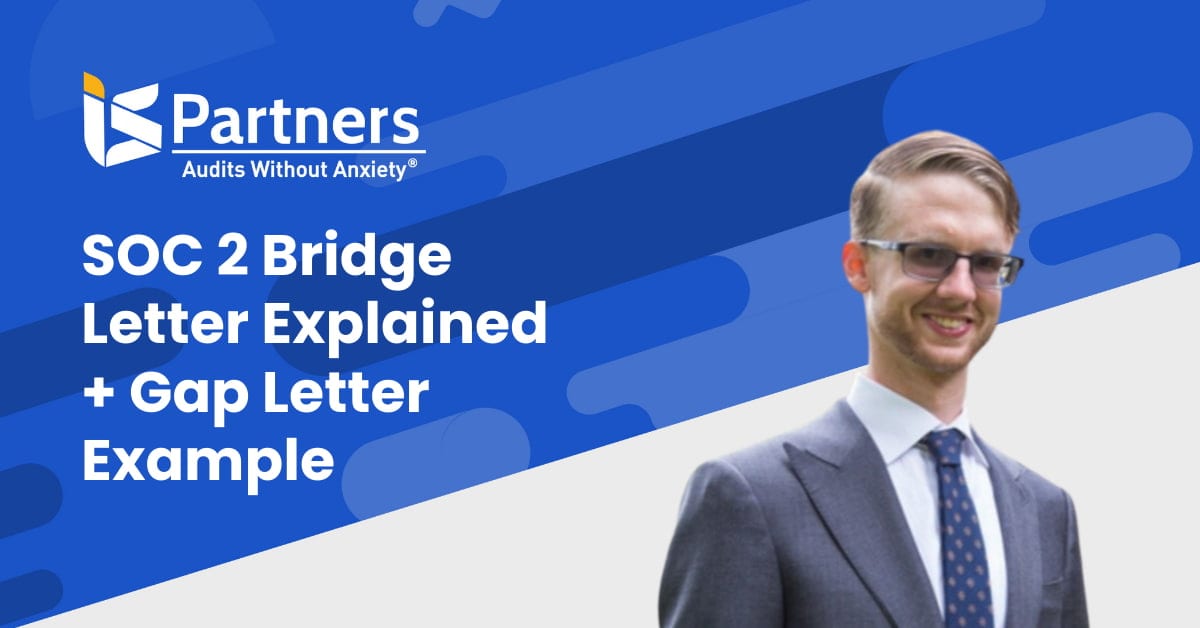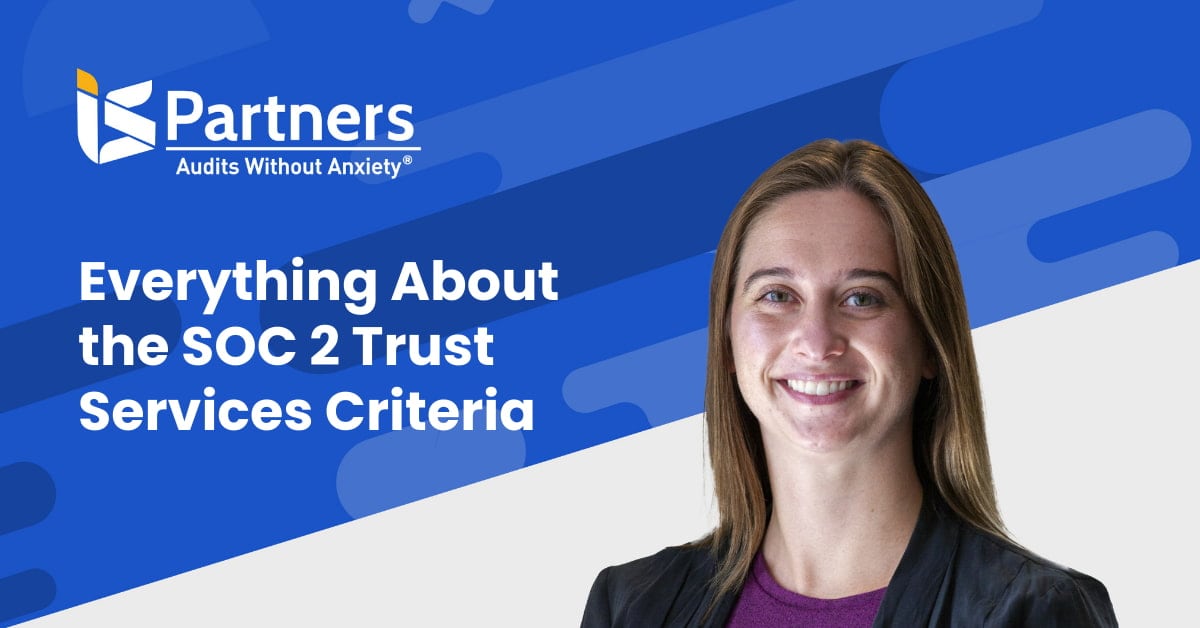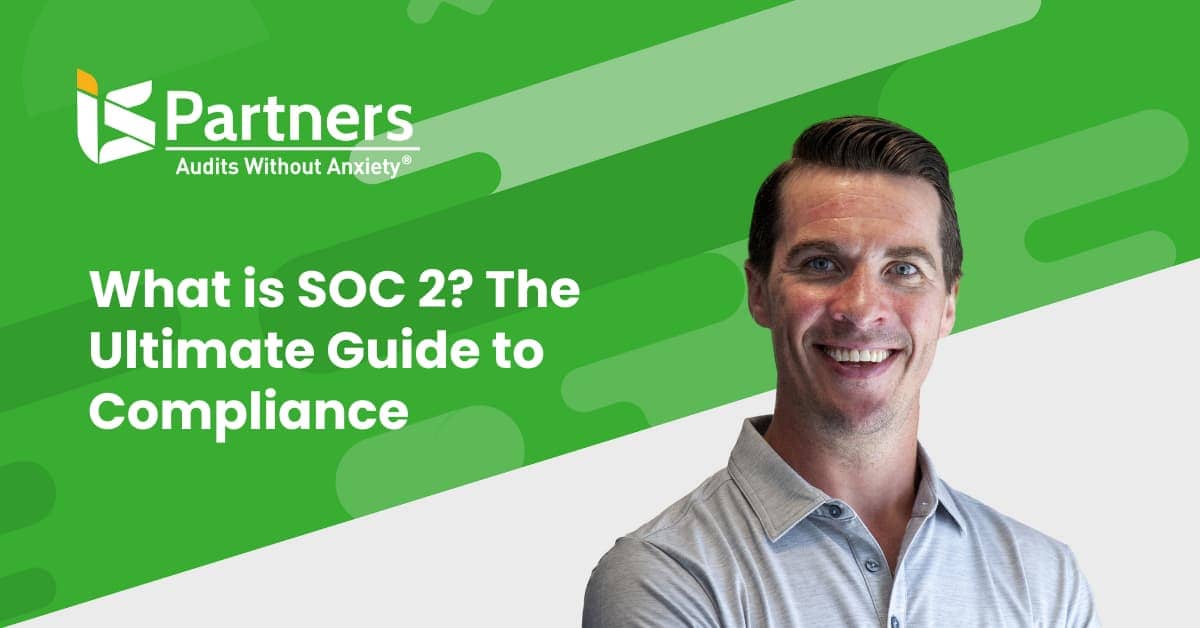How to Decide Which Audit Best Fits Your Needs: SOC 2 Type I or Type II
Comparing a SOC 2 Type 1 vs SOC 2 Type 2 audit largely depends on an organization’s specific circumstances, maturity, and the demands of its clients. Here are some considerations to help decide which audit is most suitable:
- Basic Requirements: Find out what type of audit your clients or stakeholders require. Some clients may only require a snapshot of your control environment (Type 1), while others may need the assurance of the operational effectiveness of controls over time (Type 2).
- Timeline: If you need to demonstrate compliance urgently due to a client contract or bid, then SOC 2 Type 1 may be more appropriate due to its shorter timeframe. If you have more time and need to show the operational effectiveness of your controls, then SOC 2 Type 2 would be the better choice.
- Security Maturity Level: If you’re starting your security journey, a Type I audit will provide a point-in-time assessment of your controls as they currently stand. However, if your organization already has mature, established security controls that have been in place for a while, a Type II audit may be more beneficial to test the controls’ operational effectiveness over time.
- Resource Availability: Consider the resources you have available. A Type II audit is more comprehensive; thus, it’s more time-consuming and requires more resources. If your business has limitations in these aspects, a Type I audit may initially fit better.
- Future Growth and Client Demand: If you foresee your organization scaling up, dealing with larger clients, or those from sensitive sectors like finance or healthcare, preparing for SOC 2 Type 2 would be useful.
What Is a SOC 2 Type 1 Audit?
A SOC 2 Type 1 audit provides a snapshot of an organization’s internal controls and their design at a specific point in time. Its primary purpose is to assess whether the currently implemented controls align with the requirements of the SOC 2 compliance framework.
The controls evaluated during the audit can be of various forms, such as preventative, detective, or corrective, all playing a crucial role in managing and protecting sensitive information.
The importance of SOC 2 Type I attestation lies in its ability to assure current and prospective clients about your adherence to security best practices. While obtaining SOC 2 audits are not mandatory, it is highly encouraged. Big organizations often prioritize information security and prefer collaborating with entities that demonstrate a robust security-first approach. Therefore, having a SOC 2 Type 1 audit performed and releasing a SOC 2 Type 1 report gives any organization a competitive edge.
What Is the Purpose of a SOC 2 Type I Audit?
The purpose of a SOC 2 Type I audit, distinct from SOC 2 Type II and differing from SOC 1 and SOC 3, is to evaluate the design and implementation of an organization’s security procedures at a specific moment in time.
SOC 2 Type I centers on examining an organization’s internal controls, which could be preventative, detective, or corrective. This evaluation helps confirm whether the present controls align with the SOC 2 framework’s requirements. The key intent here is to assure both existing and potential clients that your organization adheres to security best practices in managing sensitive data. Even though SOC 2 compliance is not obligatory, it’s incredibly advantageous as many large businesses prioritize information security and prefer to work with businesses demonstrating a strong security-first stance.
Related article: Similarities and Differences – SOC 1 vs SOC 2 vs SOC 3.
What Is the Purpose of a SOC 2 Type 1 Attestation?
The purpose of SOC 2 Type 1 audit is to evaluate the design of controls at a service organization at a particular point in time.
SOC 2 Type I attestation serves as an initial step towards identifying areas that might require improvements, assessing security maturity, and endorsing ongoing efforts to fortify client data security. It presents a snapshot of how your systems conform to the relevant trust principles at a particular moment, enabling a comparative analysis between your current state and desired objectives.
Unlike other audits, SOC audits do not provide a risk score or grading system. Instead, auditors deliver an opinion on your organization’s adherence level to the five trust service principles, providing insights into the effectiveness of your control environment. The SOC 2 Type 1 plays a critical part in setting the groundwork for the SOC 2 Type 2 audit, which examines the effectiveness of these procedures over a minimum period of six months up to yearly, ensuring proactive maintenance to meet emerging threats and future requirements in the fluctuating landscape of information security.
Who Should Consider a SOC 2 Type I Audit?
A SOC 2 Type I audit benefits various organizations looking to establish and display a solid security posture. This audit can prove particularly valuable if you:
- Operate as a SaaS vendor involved in processing, gathering, or managing sensitive data. Your ability to handle such information securely is paramount, and SOC 2 Type I can manifest your commitment to security.
- Require showing security compliance urgently. A SOC 2 Type I audit has a significantly shorter timeline than Type II, providing you with a swift way to showcase compliance.
- Are on your initial journey toward security compliance and wish to assess your capability to meet SOC 2 Type II objectives. A Type I audit is a perfect starting point to evaluate your current mechanisms and identify areas for potential improvements.
- Maintain a tight budget. When your financial resources are limited but you need a compliance report to attract sales deals, a SOC 2 Type I audit could serve as a cost-effective solution.
It’s essential to remember that both types of SOC reports require an audit performed by a certified service auditor or CPA firm. The decision generally hinges on factors like timelines, your systems’ readiness, and prospective clients’ specific requirements.
A SOC 2 Type 1 audit is ideal for organizations new to compliance or those needing to demonstrate their security controls design quickly. However, they may want to consider moving to a SOC 2 Type 2 audit for longer-term, comprehensive security assurance.
What Are the Benefits and Limitations of SOC 2 Type I Audit?
Benefits of a SOC 2 Type 1 Audit
- Immediate Verification: A SOC 2 Type I report provides an organization with instant verification of its control environment as it assesses the business’s security controls at a specific time.
- Good for New Organization: It serves as an excellent starting point for startups and organizations new to the compliance journey, allowing them to develop an understanding of their current security posture.
- Demonstrates a Commitment to Security: It signifies to clients and stakeholders that an organization is serious about protecting its data, which helps establish trust.
- Shorter Timeline: The Type I audit has a shorter timeline compared to Type II, enabling companies to demonstrate compliance rapidly, which is beneficial for urgent client requirements.
Limitations of a SOC 2 Type 1 Audit
- Absence of Operational Effectiveness Verification: A Type I Audit does not provide insight into the operational effectiveness of controls over time. It is a snapshot view and does not assess whether controls function consistently over a period.
- Limited Client Acceptance: Some clients and stakeholders may not accept a Type I audit as they prefer the more comprehensive SOC 2 Type II report, which evaluates the effectiveness of controls over an extended period.
- Potentially more expenses: For organizations planning to pursue Type II compliance eventually, starting with Type I might add to costs in the long run due to double auditing.
SOC 2 Type 1 vs SOC 2 Type 2
SOC 2 Type I essentially serves as a snapshot of your control systems at a given point in time, proving advantageous when you need immediate compliance validation. However, given that potential clients increasingly reject Type I reports, favoring the more comprehensive Type II, the latter may be the best long-term solution, saving time and money incurred from multiple audits.
If you require a SOC 2 report immediately, a shortened Type II audit, covering a 3-month review period could be the ideal compromise. Ultimately, aligning your SOC audit choice with your organization’s needs and context can unlock growth opportunities and strengthen trust with your clients.
A SOC 2 Type 1 audit is ideal for organizations new to compliance or those needing to demonstrate their security controls design quickly. However, they may want to consider moving to a SOC 2 Type 2 audit for longer-term, comprehensive security assurance.
What Is a SOC 2 Type 2 Audit?
A SOC 2 Type 2 Audit is a third-party assessment focusing on how cloud-based service providers protect sensitive data. This audit reviews the appropriateness and operational effectiveness of a company’s internal controls.
The SOC 2 Type 2 report examines the five Trust Services Criteria over several months, unlike Type I, which gives a snapshot of controls at a specific point in time. Continuous monitoring under Type II offers more robust assurance of a provider’s long-term capacity to keep information secure. To maintain their SOC 2 Type 2 compliance, companies are required to undergo these audits annually.
Ultimately, the SOC 2 Type 2 designation is more rigorous as it requires policies and systems to be evaluated for a minimum of six months, ensuring a comprehensive assessment of controls over a set period.
What Is the Purpose of a SOC 2 Type 2 Audit?
The purpose of SOC 2 Type 2 audit is to evaluate the effectiveness of those controls over a specified period of time.
A SOC 2 Type II audit aims to evaluate the design and operational effectiveness of an organization’s internal controls, particularly those pertaining to cloud-based service providers. The audit, performed by an independent body, tests how well an organization safeguards sensitive data over a set period.
The audit covers five primary trust service principles: security, availability, processing integrity, confidentiality, and privacy. It inspects these controls over several months or longer, unlike a Type I audit, which focuses on a specific point in time.
By fulfilling the requirements of the SOC 2 Type 2 audit, an organization demonstrates that its internal controls maintain operational effectiveness over an extended period. It reassures clients and stakeholders regarding the consistent protection of sensitive information. This makes it a vital audit for companies, helping to build trust and confidence in their security measures. It’s important to note that organizations are required to go through this audit annually to maintain their SOC 2 Type 2 attestation.
What Is the Purpose of a SOC 2 Type 2 Attestation?
The purpose of SOC 2 Type 2 attestation is to provide assurance over the operational effectiveness of an organization’s internal controls. This type of attestation assesses controls over a defined period, typically at least six months, demonstrating that the measures in place have been consistently effective.
SOC 2 Type II attestation is critical in demonstrating to clients, stakeholders, and regulatory authorities that a company is taking the necessary steps for data protection over time. It offers third-party validation, which can significantly enhance an organization’s reputation and standing in the industry.
By obtaining a SOC 2 Type 2 attestation, an organization can exhibit a long-term commitment to data security and privacy, presenting a strong case to clients and potential customers about the effectiveness of its control systems.
Who Should Consider a SOC 2 Type II Audit?
A SOC 2 Type 2 audit is a valuable consideration for various types of businesses, especially those handling sensitive customer data. This might be particularly beneficial if you:
- Operate as a Cloud-based Vendor: If you’re pursuing enterprise accounts, achieving SOC 2 Type II compliance can be a competitive advantage as it is often a requirement for businesses handling sensitive data.
- Have Past Data Breaches: For companies that have previously suffered data breaches, a SOC 2 Type II Audit demonstrates a reinforced commitment to robust security practices, reassuring partners that past security lapses have been addressed.
- Have Uncertified Competitors: If your competition lacks certification, SOC 2 Type II Audit can prove your commitment to security, distinguishing your business in terms of anticipating client needs for transparent processes.
- Are a Provider of Managed IT services or Software-as-a-Service (SaaS): Entities such as cloud computing vendors, managed IT services providers, SaaS providers, and data centers can significantly benefit from a SOC 2 Type II audit.
What Are the Benefits and Limitations of SOC 2 Type I Audit?
Benefits of SOC 2 Type 2 Audit
- Long-term Assurance: A SOC 2 Type II audit, unlike Type I, assesses the operational effectiveness of controls over a significant period, providing a thorough, long-term view of an organization’s security posture.
- Increased Credibility: By successfully passing this audit, a company demonstrates to its customers and stakeholders that its control systems are reliable and effective over time. This boosts customer trust and confidence.
- Competitive Advantage: A SOC 2 Type II report can provide a competitive advantage, particularly when bidding for large enterprise contracts. It often serves as a differentiator, incubating trust and assurance among potential clients.
- Identification of Weaknesses and Improvements: The audit process gives organizations valuable insights into any potential weaknesses or areas of improvement, enabling them to enhance their security controls continuously.
Limitations of SOC 2 Type 2 Audit
- Time-consuming: The SOC 2 Type II audit process is conducted over a minimum of six months, so it can be time-consuming for businesses needing to demonstrate compliance more promptly.
- Resource Intensive: This comprehensive audit demands substantial resources, including time, workforce, and potential costs. Smaller organizations may find it challenging to allocate these resources.
- Complex Process: The process of achieving SOC 2 Type II compliance is quite complex, requiring skilled expertise, significant documentation, and detailed controls that operate effectively over a period of time.
- Regular Reassessment Requirement: To maintain the compliance, businesses must go through the audit annually.
SOC 2 Type 1 vs Type 2
Organizations generally choose SOC 2 Type II over Type I when stakeholders, including customers, prospects, partners and investors, demand a more comprehensive, ongoing evaluation of security controls beyond a point-in-time snapshot, a feature of Type I.
Going for SOC 2 Type 2 allows you to demonstrate your continuous commitment to security, increasing the potential to secure contracts with larger businesses. This kind of report reflects your ongoing efforts to ensure risk management, access controls, change management, and control monitoring are optimally aligned with your organization’s security needs.
Trust SOC 2 Auditing to I.S. Partners
With informed guidance and expertise, I.S. Partners can help. Our specialized services in SOC 2 audits provide a systematic and efficient approach to achieve compliance, enabling you to focus on what you do best – growing your business. Contact I.S. Partners today.
SOC 1®, SOC 2® and SOC 3® are registered trademarks of the AICPA (American Institute of Certified Public Accountants). The AICPA® Trust Services Criteria for Security, Availability, Processing Integrity, Confidentiality, and Privacy is copyrighted by the Association of International Certified Professional Accountants. All rights reserved.




